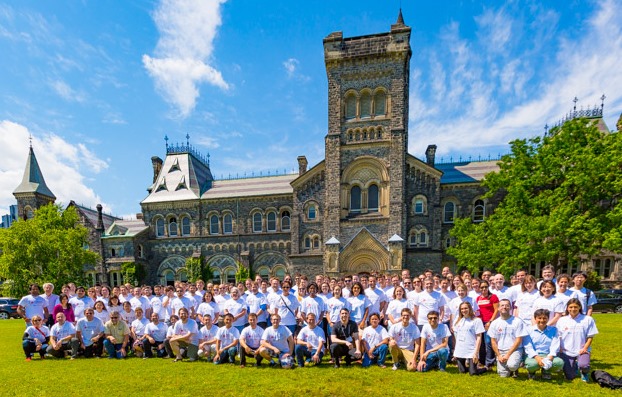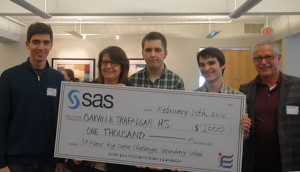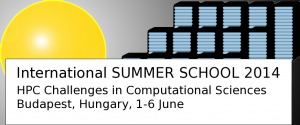International HPC Summerschool 2016 in Slovenia
December 16, 2015 in blog, for_educators, for_researchers, for_users, frontpage, news, Uncategorized

Apply by 15 February 2016, decisions on March 9, 2016
Expenses-paid program
Sponsored by PRACE, XSEDE, Riken, and Compute Canada
website: http://ihpcss2016.hpc.fs.uni-lj.si/
The seventh International Summer School on HPC Challenges in Computational Sciences will be held from June 26-July 1, 2016, Ljubljana, Slovenia. This is an advanced summer school on High Performance Computing which targets graduate students and postdocs who already have some experience in HPC parallel programming (for instance, MPI, OpenMP, or CUDA/OpenCL), preferably on software used in successful research projects.
The organizers of this summer school are XSEDE, PRACE, Compute Canada, and RIKEN.
Leading American, Canadian, European and Japanese computational scientists and HPC technologists will offer instruction on a variety of topics. The program is still being finalized, but previous summer schools included the following:
- Access to EU, Canadian, Japanese and U.S. HPC-infrastructures
- HPC challenges by discipline (e.g., bioinformatics, computer science, chemistry, and physics)
- HPC Programming Proficiencies
- Performance analysis & profiling
- Algorithmic approaches & numerical libraries
- Data-intensive computing
- Scientific visualization
Participation in the summer school is decided through an application process. Meals, housing, and travel will be covered for the selected participants. Applications from students in all science and engineering fields are welcome. Although the school targets graduate students and postdocs, applications from research assistants and faculty are also welcome. Preference will be given to applicants with parallel programming experience, and a research plan that will benefit from the utilization of high performance computing systems.
Applications are due by February 15, 2016.
For further information and to apply online, please click here.








